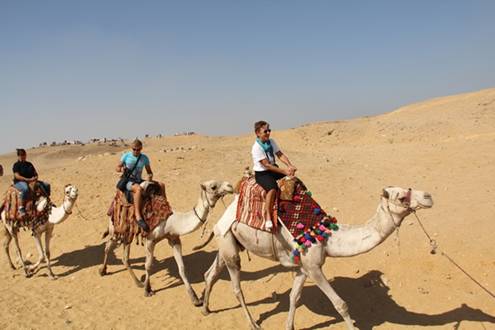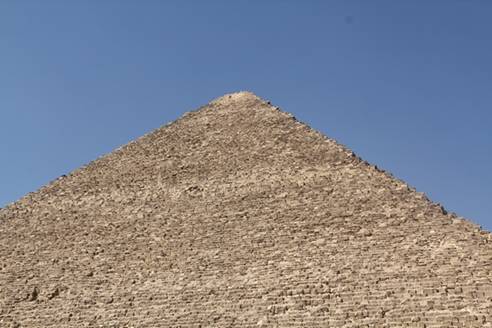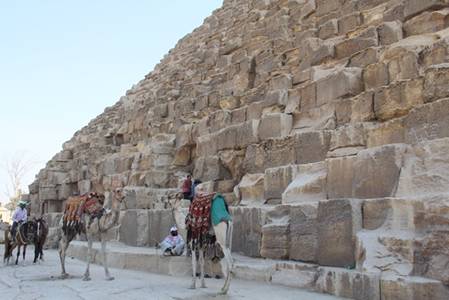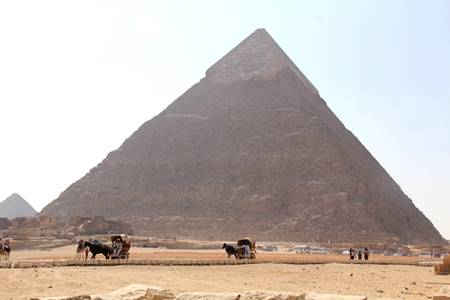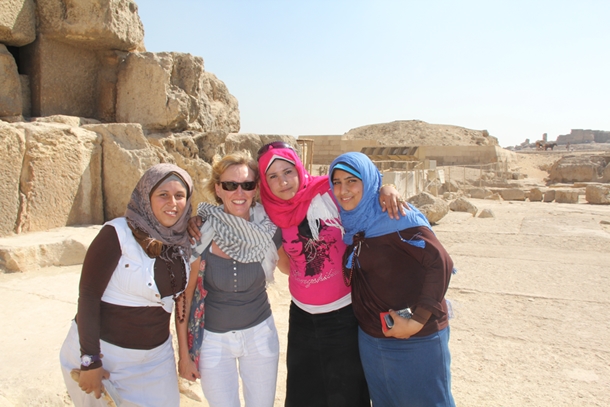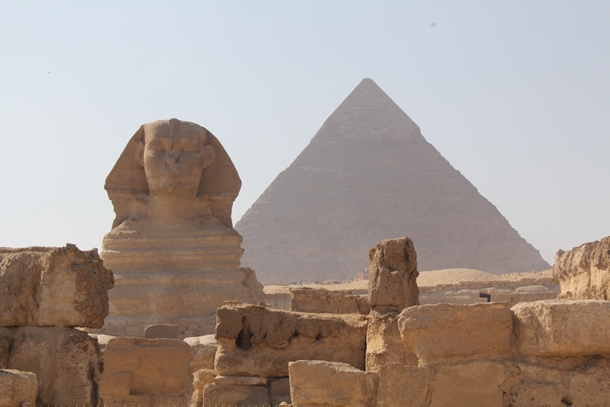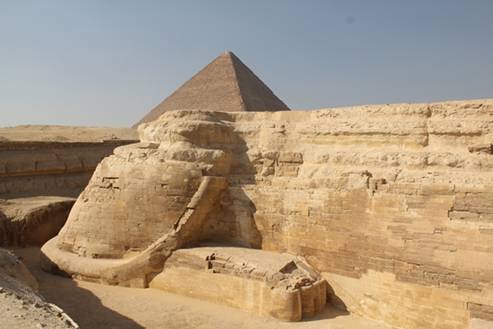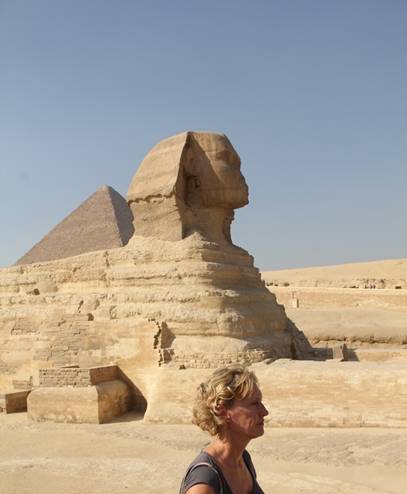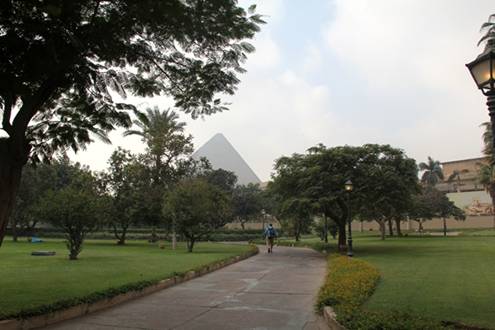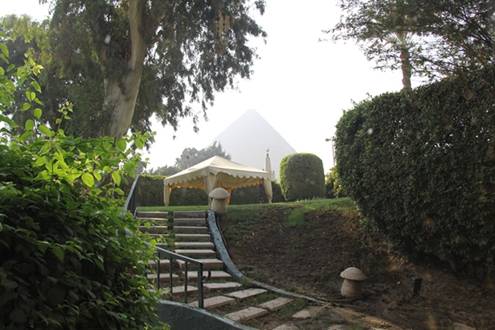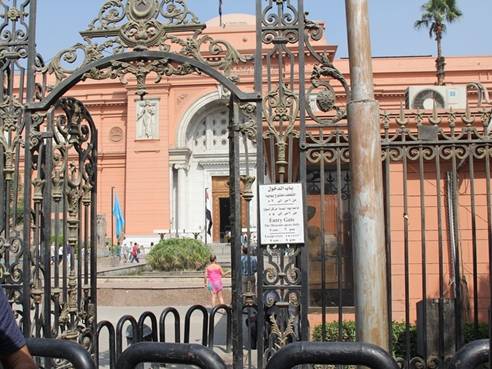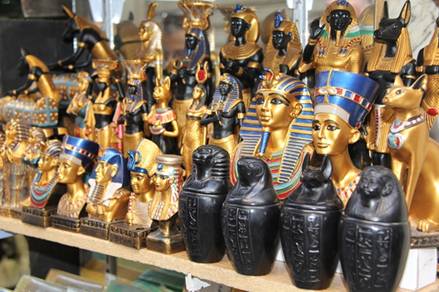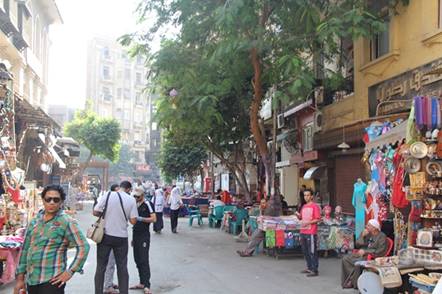Cairo - The Pyramids

|
The Pyramids of Giza are the most famous monuments of
Ancient Egypt. Built around 4500 years ago on a rocky desert plain close to
the Nile the intriguing pyramids were more than just tombs for kings and the
mysteries surrounding their symbolism, design and purpose have inspired much
debate. As we drove up the sandy road towards the
From the view point at the Giza Plateau the best way to absorb
the atmosphere and return to the pyramids is by camel, you feel as if you could
be crossing the desert and discovering the amazing structures for the first
time.
Below, Lica, Gavin, Carol, Michelle, Andy and Vanessa
The experience was truly amazing despite the fact that my
camel was prone to stumbling and lurching forward which made taking photos whilst
also staying in the saddle extremely difficult ! The largest Pyramid of Khufu (Cheops) is 140 metres high and
is built using 2.3 million limestone blocks, each weighing around 2.5 tonnes,
it was built in 2750 BC.
Originally all three pyramids were totally encased in
polished white stone which would have made them gleam in the sun. Unfortunately over the centuries this stone has been
stripped to use in Mosques and palaces, leaving the softer inner core stones to
the elements. You can see a little of the remaining outer casing at the
top of the second Pyramid of Khafre (Chephren)
This will make you laugh – the girls here thought I
looked like Angelina Jolie (I wish ) and wanted their picture taken with me !
From the Pyramids we descended the causeway to see the
Sphinx, a huge sculpture representing the body of a lion and the head of a
human. The Sphinx is carved of natural bedrock and appears to be
guarding the entrance to the largest pyramid of Khafre. It is likely that the head portrays the features of the Pharaoh
Khafre and is framed by the nemes, a striped head cloth worn by royalty.
Below you can see the huge front paws and also the tail, the
sculpture faces away from the prevailing winds to preserve the features from
the eroding sand.
The nose is missing and it is thought that it was damaged in
900 AD to show people that this was just a statue and not a sacred object. The sculpture has been buried in sand several times and
excavated to restore its presence.
Typical of all Egyptian ‘promises’ we didn’t
stay in the Marriott ! However we did stay in the oldest hotel in We also enjoyed the enormous swimming pool and a nice hot
bath !
In the evening our mini bus fought the chaotic traffic of Lovely food and hilarious entertainment including ‘Abba’
singers, traditional swirling dancing, a local ‘band’ with guest
singers (straight from the Mosque I think) and a very top heavy belly dancer ! The boat was very old and ornate and reminded us of the
dinner cruises along the The next day we headed across town again to spend the
morning looking at the awesome exhibits in the I’m afraid that’s the only photo you get of the
museum as cameras are strictly forbidden – so you will have to visit
yourselves ! Highly recommended, a few hours do not give it justice,
however the highlights must be the Tutankhamen and the Mummy rooms. The artefacts of Tutankhamen were truly amazing, such intricate
workmanship and such a huge amount of Gold. If this much treasure was given to a King who reigned for just
nine years between the ages of 9 to 18, imagine what treasures the raided tombs
such as Ramses must have held.
After a brief look around the market area and a stop for
provisioning at Carrefour in
|


